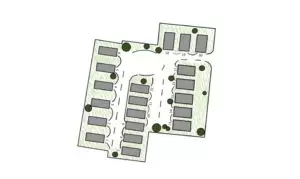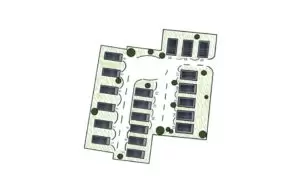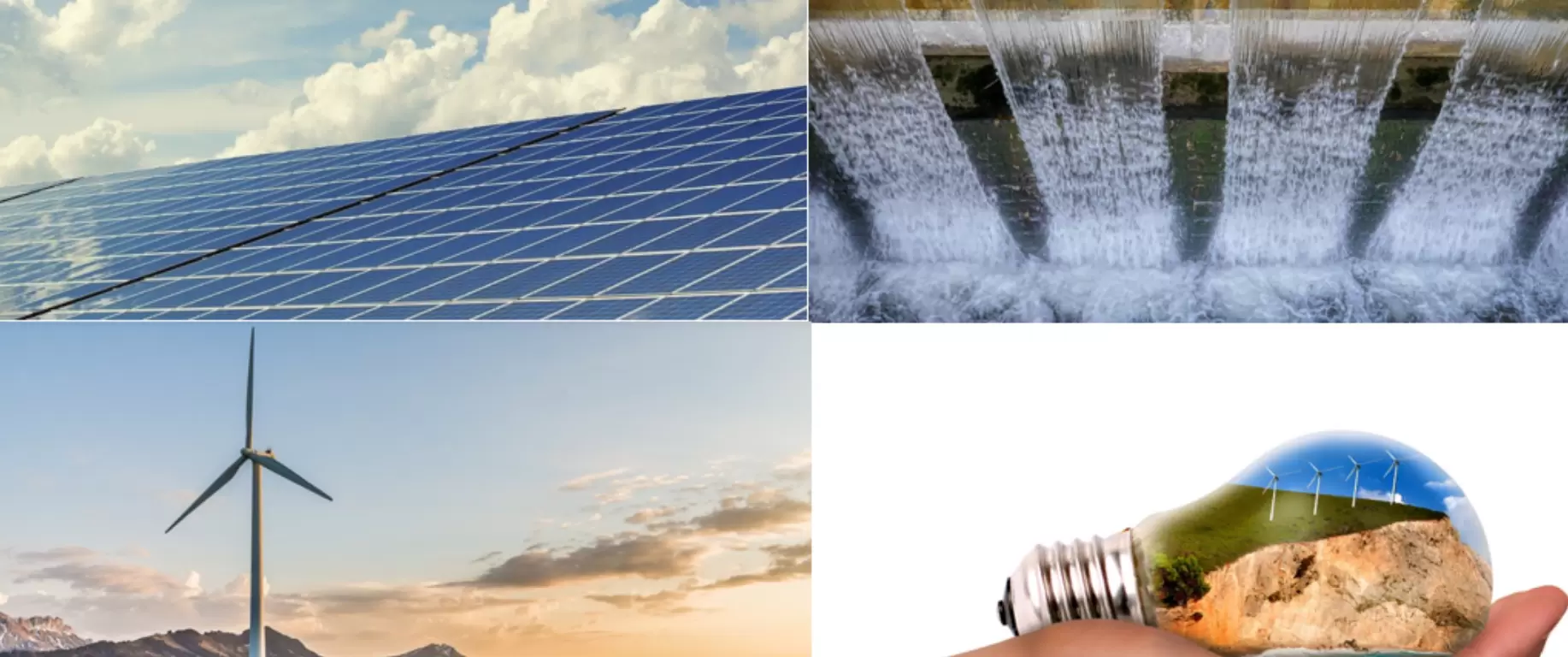Nowadays the non-renewable energy is getting narrow and we need to replace this energy source with renewable energy. This is how Rahel and I got our idea for our second project in T&U. We wanted to research how much energy in kWh one household needs in average. In addition we researched how much energy photovoltaic cells, wind turbines and water supply companies produce. To calculate how much CO2 emissions could be prevented, we created a virtual accommodation. Our accommodation includes 20 detached houses with 3 persons on average. We created to different versions of the accommodation. The first one with no renewable energy and the second one with photovoltaic cells on every roof.
This is our introduction video for our project:
Our accommodation
An average family with 3 family members wastes circa 5’200 kWh every year [1]. Therefore our accommodation needs 104’000 kWh per year (5’200 kWh*20). Of the total energy consumption in Switzerland in 2018, 49.5% was generated by oil, 25.0% by electricity, 13.5% natural gas and the remaining 12.0% are generated by different sources [2]. This means 51’480 kWh in our accommodation are guaranteed with oil, 26’000 kWh with electricity and 14’040 with natural gas. 12’480 kWh are generated by various other energy sources. One liter of mineral oil produces circa 10 kWh ernergy, which means that our accommodation needs 5’148 liters of mineral oil per year [3]. In 2017 1 kWh costed an average CHF 0.202 in Switzerland [4]. For our accommodation this costs CHF 22’880 per year (104’000 kWh*0.202).

Solar Energy
Assuming that our accommodation now switches 100% to solar energy, this accommodation would need 846 m2 of solar modules, which corresponds to 42.3 m2 per house roof (104’000 kWh : ((1260+950)/2) = 846 m2)[5]. The Idea of the solar collector is, that the families from the accommodation share it, in order to save costs. To purchase a solar system of this size, approximately CHF 235’000 are required (104’000 kWh / 7200 kWh)*CHF 16’000 = 231’100) [6]. Probably it won’t cost that much, because they share the solar generators. That’s why all the families from the accommodation will benefit from the solar system.

Costs for the solar energy
In Order to analyze the costs of solar energy, period of at least 10 years must be caluculated. The acquisition costs of the solar cells for our accommodation amount approximately CHF 231’111.10. In the following years, there will be at most service costs, if something is damaged. According to our calculations the costs for non-renewable energys in our accommodation amounts to CHF 22’880 per year. Service and maintenance costs for heating etc are not included here either. After 10 years, CHF 228’000 was spent on non-renewable energy.Therefore they could save costs with the solar cells from the 11th year.
CO2-Emissions
In addition to the costs, that can be saved, an important point are the CO2-emissions that can be reduced. Our district emits 15.5 t CO2 per year for the energy consumption of approx 104’000 kWh [7]. For comparison a car emits between 140 and 190 grams of CO2 per kilometer.

Waterwerks systems and wind generator
For an accommodation with 20 houses, neither a wind generator nor a waterwerk system makes sense, since this energy sources produce much more energy than necessary. In the case of a village with 2’000 inhabitants, we could also include the wind generator or the waterwerk system. A wind turbine generates 3 mW of Energy per year. In the case of the waterwerk system it depents on its size [8].

Conclusion
For our project we created an accommodation to show the positive aspects of energy sharing. In addition to the costs that can be saved, energy sharing also has a positive impact on the environment. We found it very exciting to do these calculations to show the difference. We used most of the time for research. It was difficult to find reliable sources. In our point of view energy sharing could be a great way to protect the environment in the future. We really enjoyed working on this project and we are looking forward to your feedback.
Sources
[1]Consumption of electricity (ekz.ch)
[2]Energy Sources (swv.ch)
[3]Oil in kWh (energie-Umwelt.ch)
[4]Costs for one kWh in Switzerland (nzz.ch)
[5]Solar Energy (krist.com)
[6]Costs for Solar (solarspar.ch)
[7]CO2-Emmision (myclimate.org)
[8]Wind Generator (igwindkraft.at)
[9]Header pictures
This text was checked by Dylan B.
On-topic posts on dontwastemy.energy
Q51 – Why don’t we all use Solar Energy?
This Project is from Shana and Rahel
☷ See the project teams here »
☵ Some words about the contributions »
☴ Our sponsors and partners » (the-horse.education)

I liked the topic very much. I think it’s an important topic to research on. In my opinion, the text itself is on point and you can see a clear structure. I found the idea of calculating CO2 emissions very good. From my point of view, there is nothing to add. Well done!
This topic explains very well what we can or should do to maintain the world for our future generations. Nowadays, rarely do people know about this topic. The calculations performed very accurately, which we consider good.
This is a very important issue for all of us.
Unfortunately, people know very little about it, so it is a very important project, which explains very well what we can do to preserve the world for our descendants.